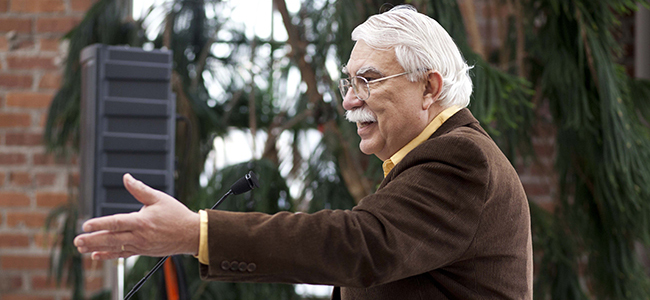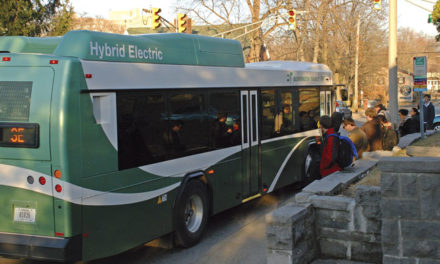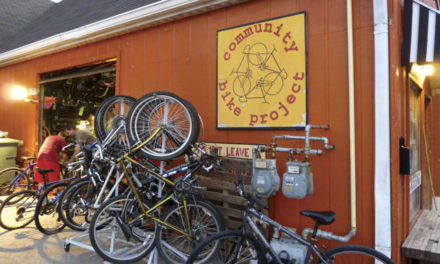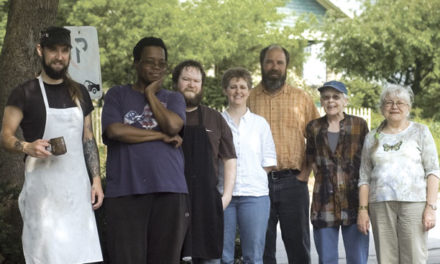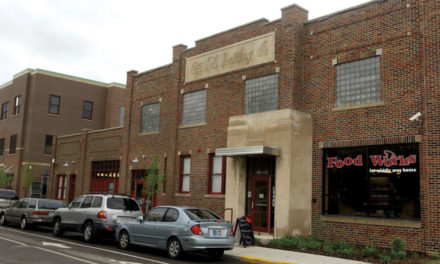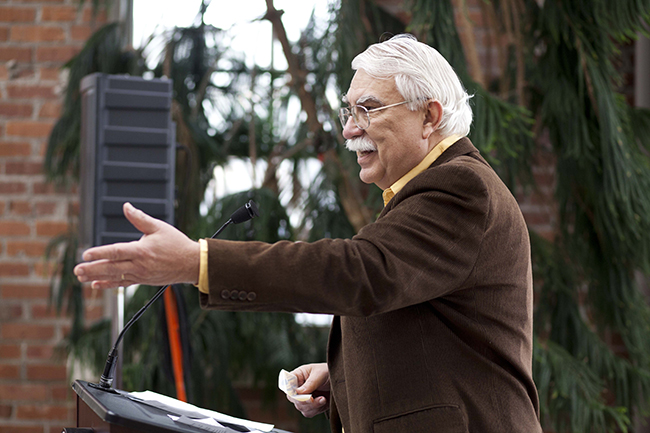
Byron Bangert, Bloomington Human Rights Commission chair, announced the first Fair Labor Initiative decal recipients at City Hall in December 2014. Photo by Shannon Zahnle.
BY CARMEN SIERING
For 50 years, the Bloomington Human Rights Commission (BHRC) has been advising individuals and groups on matters of discrimination in employment, housing, and public accommodation. Still, many people are unaware of the commission’s powers, some even of its existence. “That’s understandable,” says Barbara McKinney, assistant city attorney and BHRC director. “You might not need us until you’ve been discriminated against.”
According to city records, the commission was created in 1965 by the Bloomington Common Council. Originally called the Bloomington Human Relations Commission, the group was tasked with advising “persons and groups in such ways as may be expected to prevent inequalities which appear to be due to membership in minority groups in such areas as employment, housing, education, recreation, public accommodation, and law enforcement.” At that time, the commission was only able to resolve issues by voluntary agreement and had no legal authority to investigate complaints.
The commission was given legal authority along with its current name in 1975. “Our main job is the enforcement of the Human Rights Ordinance,” McKinney says. “We have the authority to enforce provisions that are part of state law.” Those provisions include discrimination based on race, sex, religion, disability, national origin, color, ancestry, and veteran status
McKinney says in cases where the city ordinance is not backed by state law, the commission must rely on voluntary cooperation and mediation. “We’ve had good cooperation, but we can’t compel it,” she says.
Byron Bangert, BHRC chair, has been on the commission for more than 15 years. Just before he joined the commission, discrimination based on sexual orientation was added to the city ordinance. Since then, discrimination based on gender identity and housing status have been added. “The initiative for each of these came from the community,” Bangert says. “We don’t make changes for ideological reasons. We make them for very real reasons, because real people are being discriminated against.”
An example of how public concern can spur the commission into action is the Fair Labor Initiative. “People came to us raising questions about how employees were being treated in local restaurants,” Bangert says. “We looked into it to find out what we could do.” In December 2014, the first 10 restaurants signed the Fair Labor Initiative agreement; now more than two dozen restaurants have signed on.
The BHRC can be reached at 812-349- 3429 or by email at human.rights@bloomington.in.gov.


